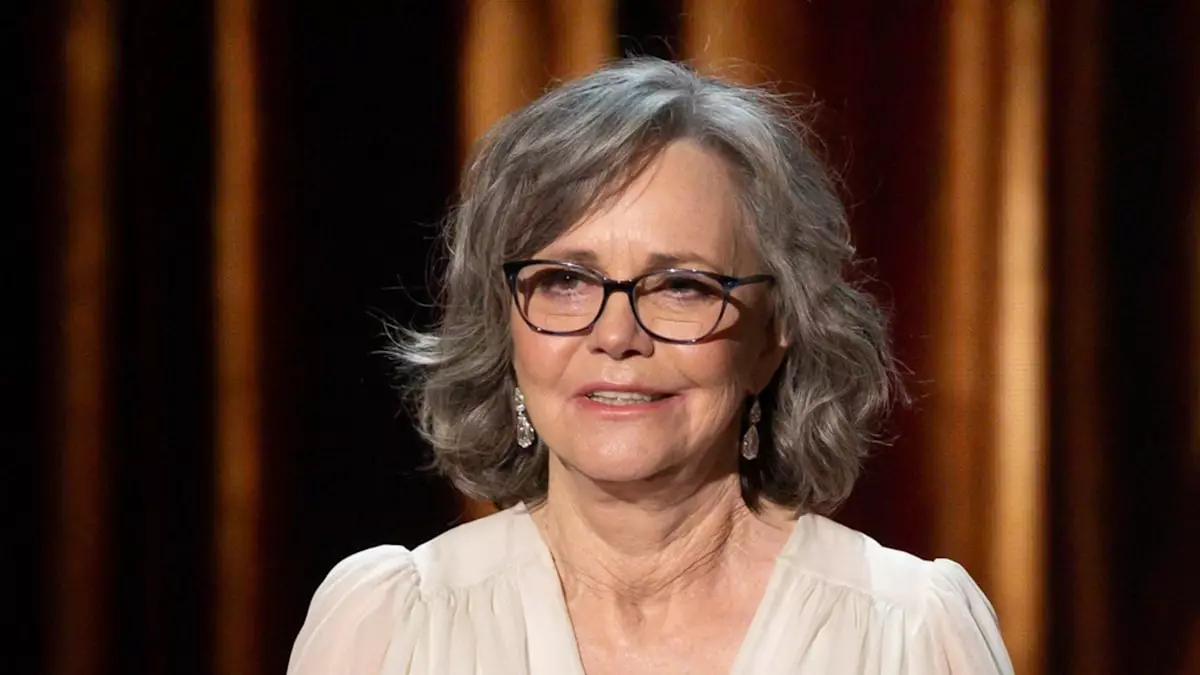In a poignant message shared on social media, actress Sally Field courageously unpacked a traumatic experience from her past, bringing to the forefront a subject that has resonated deeply across generations—reproductive rights. Reflecting on her horrifying experience of having an illegal abortion at the age of 17, Field’s revelation transcends personal narrative; it is a haunting reminder of the systemic issues that can restrict women’s autonomy over their bodies. The timing of her disclosure coincides with a significant electoral moment as the 2024 presidential race heats up, emphasizing the critical discussions surrounding women’s health rights.
Field’s recollection is laced with a sense of shame. She describes a time when society offered her no options or support, leaving her to navigate a harrowing decision alone. This narrative sheds light on the cyclical nature of stigma surrounding abortion, revealing how these longstanding societal attitudes continue to affect women today. Her story is not just her own; it echoes the fears and struggles of countless women from her generation who faced similar dilemmas when access to safe reproductive health care was compromised.
At the heart of Field’s message is a gripping recount of her only option—a journey to Tijuana facilitated by a family doctor. This part of her story starkly illustrates the lengths to which women have historically gone to seek safety and care. The scene she paints is terrifying: a young girl left alone with an envelope of cash, navigating fear, pain, and exploitation. The lack of anesthesia during the procedure and the insidious reality of sexual abuse during such a vulnerable moment underlines a chilling truth—when women are stripped of their rights, their dignity can also be compromised.
Field poignantly notes the dissonance between her public persona as a youthful icon in “Gidget” and her harrowing private ordeal. This juxtaposition emphasizes the complexities women face; societal expectations often clash with personal experiences that are hidden from public view. Her candidness about this life-changing moment serves as a stark reminder of the inappropriate and unsafe conditions many women have endured, and perhaps still do in various parts of the world.
Reflecting on her experience, Field lauds the bravery of the individuals who helped her navigate her crisis while expressing concern for future generations. There is a palpable fear in her words that the freedoms she fought to achieve could be reversed. In her speech, she urges society not to regress into a time of severe limitations and stigma. She calls upon women and society alike to protect the rights of young women today, emphasizing that every woman deserves respect in her health decisions.
This impassioned plea resonates against a backdrop of political discourse where abortion rights are frequently called into question. Field articulates a vital message about solidarity—how shared experiences among women can create a collective strength, fostering the courage to advocate for rights that safeguard autonomy and health. By aligning herself with political figures who champion reproductive rights, such as Kamala Harris and Tim Walz, Field not only elevates her personal story but embeds it within a larger narrative advocating for change.
Field’s willingness to share her painful past is both a personal healing journey and a call to action. She implores her audience to remain vigilant as elections approach, signaling that every vote matters and that participation is essential in shaping the political landscape regarding reproductive health. This perspective is grounded in the belief that empowerment comes from visibility and vocal dissent against injustices.
The urgency of her message transcends the individual; it encapsulates a broader fight for women’s rights. As generations arise with different societal challenges, Field’s testimony serves as a beacon, urging continued advocacy and attentive awareness to ensure that history does not repeat itself. She highlights an essential truth: when women come together to share their stories, they reclaim their narratives, transforming trauma into a powerful collective force urging change.
In closing, Sally Field’s poignant recollection is not merely a reflection on her personal history but a rallying cry for future generations to uphold and protect the autonomy of women everywhere. As we navigate the complexities of reproductive rights, her story reminds us of the vital importance of access, respect, and agency in shaping our lives.

